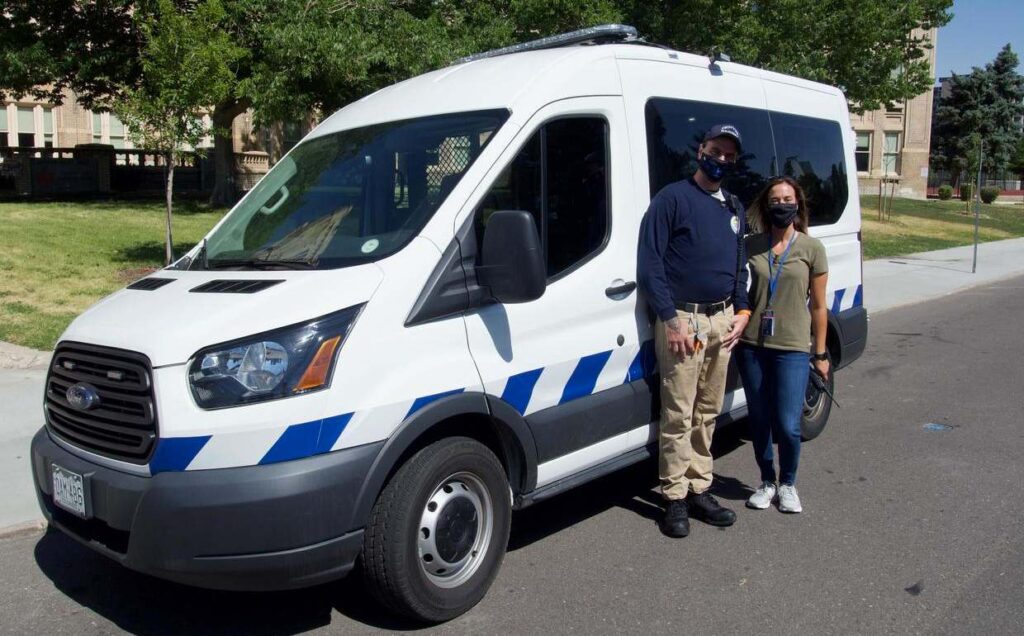A pilot program where teams of social workers and paramedics respond to certain non-criminal complaints in Denver is showing early success.
By Andy Corbley

The Support Team Assisted Response (STAR) program was launched in June to help ensure the vulnerable get the help they need.
Over the course of six months, 748 calls relating to low-level incidents—such as mental health crises—were responded to by mobile teams of STAR health care workers instead of police officers.
Six months after it began, STAR’s first progress report has now been published, and it shows the innovative program is working.
According to Denver Police Department (DPD) chief Paul Pazen, none of these low-level calls ended in arrests or jail-time, and no police officer needed to be called to the scene. “This is good stuff, it’s a great program, and basically, the report tells us what we believed,” Pazen told The Denverite.
Foundation for success
The majority of the STAR-eligible calls were for trespassing/unwanted persons, welfare checks, and from uniformed officers asking for assistance in ongoing matters.
In fact, of all the incidents STAR responded to, 34% were assist calls from officers already engaged in an incident, which program member and strategic initiatives coordinator for the DPD, Dr. Matthew Lunn, says is a good sign: It means police officers believe in the program and want to utilize it.
“I think it shows how much officers are buying into this, realizing that these individuals need a focused level of care,” said Lunn, who authored the report.
Indeed, 61% of individuals encountered by STAR were identified as perhaps having a mental health issue based on initial contact and behavioral assessment, with 33% also having co-occurring conditions, such as homelessness or substance abuse.
Lessons learned suggested that the STAR van should be stocked with more supplies, especially blankets, clothing, cleaning supplies, and food, which would allow the team to quickly address immediate issues.
The city of Denver has allocated $1.4 million to expand the service, and the Caring for Denver foundation has matched those funds. This will help the program expand to having multiple supplied vans—with enough professionals to work 8-hour shifts covering all hours of the week.
“I want the police department to focus on police issues,” Pazen told The Denverite. “We have more than enough work with regards to violent crime, property crime, and traffic safety, and if something like STAR or any other support system can lighten the load on mental health calls for service, substance abuse calls for service, and low-level issues, that frees up law enforcement to address crime issues.”
Given the Black Lives Matter protests of 2020, it seems likely that increasing numbers of police departments around the world will follow in Denver’s footsteps—turning inward to see what can be done to improve the relationship between their officers and their communities—so everyone feels safe.